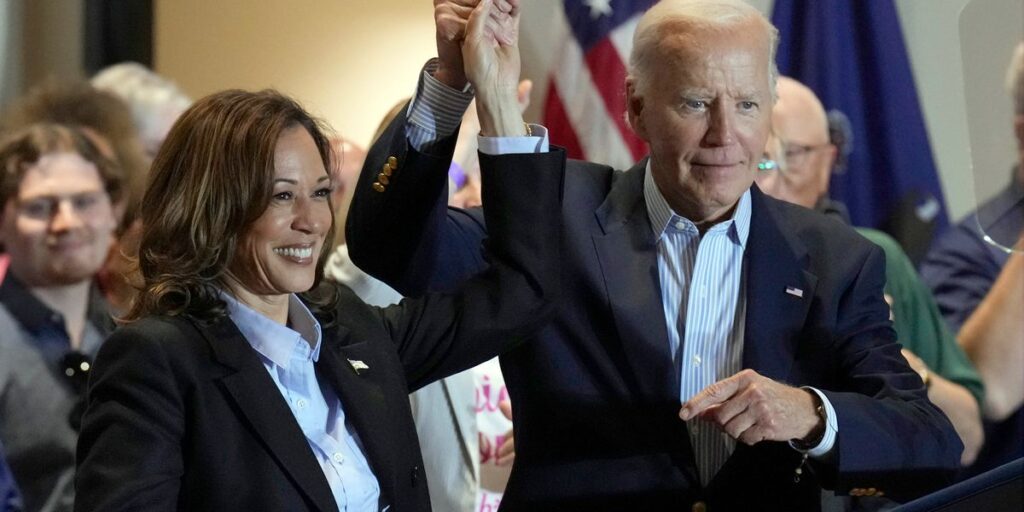On Tuesday, President Joe Biden expressed hope that Vice President Kamala Harris would define her own presidential vision if elected, particularly amid criticism of her perceived alignment with him as he grapples with low approval ratings. Speaking at the Philadelphia Democratic City Committee Autumn Dinner, Biden recounted his journey from being vice president under Barack Obama to creating his unique identity as president. He remarked, “Every president has to cut their own path,” emphasizing the importance of individual leadership. He acknowledged Harris’s loyalty but asserted that she must ultimately forge her own path as she campaigns for the presidency.
Harris has been under considerable scrutiny for not sufficiently distinguishing her policies and platform from Biden’s, especially as they jointly navigate a challenging electoral landscape. After Biden endorsed her following his exit from the race, questions arose about his viability for a second term. Critics, particularly from the Republican camp, aim to link Harris closely with Biden, capitalizing on his current public disapproval, which hovers around 40%. In this context, former President Donald Trump has been vocal in his critiques, framing Harris’s comments as unconvincing and as a sign of her inability to assume leadership.
During a recent campaign event, Trump seized upon a moment from Harris’s appearance on ABC’s “The View,” where she struggled to identify any distinct political direction that diverged from Biden’s administration. His derisive dismissal of her response underscored a broader Republican strategy to portray her as just an extension of Biden’s unpopular presidency. Polling data indicates that the electorate is craving a clearer distinction between the two Democrats, with a recent ABC News-Ipsos survey revealing that 74% of participants desire Harris to adopt a fresh approach if she were to win the presidency.
Meanwhile, the Harris campaign is aware of these voter sentiments and is working to articulate a clearer image of how her administration would differ from Biden’s. As Election Day approaches, her team has been focused on refining her messaging to connect with voters who wish to see substantive changes to current policies and strategies. Harris is under pressure to highlight her vision for the country, and develop an identity that can resonate with a diverse electorate seeking solutions and changes to existing governance.
In his address in Pennsylvania, Biden strategically pivoted from the criticisms directed at Harris to contrast her against Trump. He described Harris as a candidate who will lead the nation in a “fresh and new” direction, in stark opposition to Trump’s perceived “old and failed” approach. By emphasizing Harris’s potential strengths and the need for progressive leadership, Biden aimed to foster a sense of hope and direction among Democratic supporters, who may be unsure about the future leadership of the party.
Ultimately, Biden’s call for Harris to “cut her own path” signals a critical turning point in the evolving campaign narrative, one that could significantly impact the trajectory of the election. As she navigates the complexities of her candidacy in relation to a sitting president with sagging approval ratings, Harris must strike a balance between loyalty to Biden and the necessity of establishing her unique political presence. Voter expectations are high, and the ability to articulate a distinct vision could determine the success of her campaign as the election approaches.

